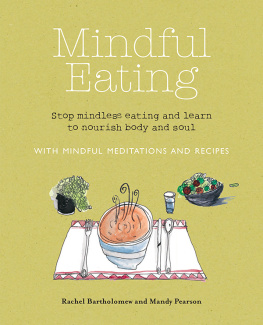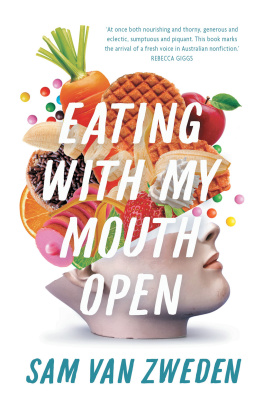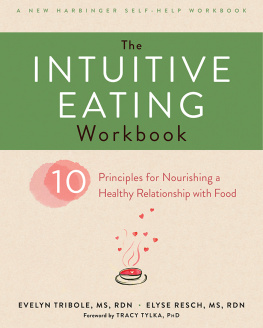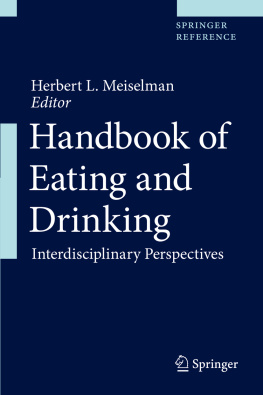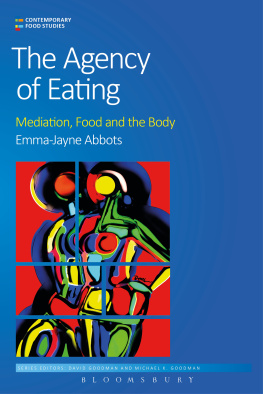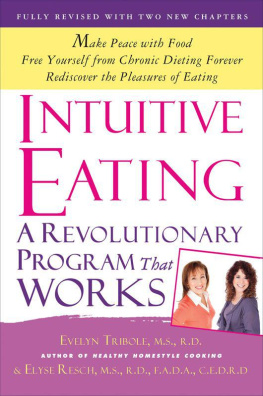Thank you for buying this ebook, published by NYU Press.
Sign up for our e-newsletters to receive information about forthcoming books, special discounts, and more!
Sign Up!
About NYU Press
A publisher of original scholarship since its founding in 1916, New York University Press Produces more than 100 new books each year, with a backlist of 3,000 titles in print. Working across the humanities and social sciences, NYU Press has award-winning lists in sociology, law, cultural and American studies, religion, American history, anthropology, politics, criminology, media and communication, literary studies, and psychology.
Racial Indigestion
America and the Long 19th Century
GENERAL EDITORS
David Kazanjian, Elizabeth McHenry, and Priscilla Wald
Black Frankenstein: The Making of an American Metaphor
Elizabeth Young
Neither Fugitive nor Free: Atlantic Slavery, Freedom Suits, and the Legal Culture of Travel
Edlie L. Wong
Shadowing the White Mans Burden: U.S. Imperialism and the Problem of the Color Line
Gretchen Murphy
Bodies of Reform: The Rhetoric of Character in Gilded-Age America
James B. Salazar
Empires Proxy: American Literature and U.S. Imperialism in the Philippines
Meg Wesling
Sites Unseen: Architecture, Race, and American Literature
William A. Gleason
Racial Innocence: Performing American Childhood from Slavery to Civil Rights
Robin Bernstein
American Arabesque: Arabs and Islam in the 19th-Century Imaginary
Jacob Rama Berman
Racial Indigestion: Eating Bodies in the 19th Century
Kyla Wazana Tompkins
Racial Indigestion
Eating Bodies in the 19th Century
Kyla Wazana Tompkins

NEW YORK UNIVERSITY PRESS
New York and London
www.nyupress.org
2012 by New York University
All rights reserved
LIBRARY OF CONGRESS CATALOGING-IN-PUBLICATION DATA
Tompkins, Kyla Wazana.
Racial indigestion : eating bodies in the 19th century/
Kyla Wazana Tompkins.
p. cm. (America and the long 19th century)
Includes bibliographical references and index.
ISBN 978-0-8147-7002-3 (cl : alk. paper)
ISBN 978-0-8147-7003-0 (pb : alk. paper)
ISBN 978-0-8147-7005-4 (ebook)
ISBN 978-0-8147-3837-5 (ebook)
1. Food habitsSocial aspectsUnited StatesHistory19th
century. 2. DietSocial aspectsUnited StatesHistory19th
century. 3. CookingSocial aspectsUnited StatesHistory
19th century. 4. Human bodySocial aspectsUnited States
History19th century. 5. United StatesRace relations
History19th century. 6. Graham, Sylvester, 17941851. 7. Alcott,
Louisa May, 18321888Criticism and interpretation. 8. Food in
literature. I. Title.
GT2853.U5T66 2012
394.120973dc23
2011051505
References to Internet Websites (URLs) were accurate at the time of writing. Neither the author nor New York University Press is responsible for URLs that may have expired or changed since the manuscript was prepared.
New York University Press books are printed on acid-free paper, and their binding materials are chosen for strength and durability. We strive to use environmentally responsible suppliers and materials to the greatest extent possible in publishing our books.
Manufactured in the United States of America
c 10 9 8 7 6 5 4 3 2 1
p 10 9 8 7 6 5 4 3 2 1

A book in the American Literatures Initiative (ALI), a collaborative publishing project of NYU Press, Fordham University Press, Rutgers University Press, Temple University Press, and the University of Virginia Press. The Initiative is supported by The Andrew W. Mellon Foundation. For more information, please visit www.americanliteratures.org .
I dont think youre ready for this jelly
My bodys too bootylicious for you. Destinys Child
Contents
Acknowledgments
Though I will come quickly to the long list of people to whom I am indebted, I hope that I will be forgiven a quick digression so that I may acknowledge the many tables where I began to observe the politics of food and eating. Eating and cookingat restaurants or at homehave always gone hand in hand with the world of ideas and art for me. I stumbled over many of the ideas in this book either talking and eating with family or, alternately, sitting alone in a caf or bar with a cold cup of coffee, something small and delicious (and, while a student, cheap), and my laptop or a book.
To wit, let me start with my mother, Lydia Wazana, and her restaurant Miroformerly La Pizzeriawhich is to be found beachside in Cabarete, the Dominican Republic. Anyone whose parent runs a restaurant knows how lucky I have been to have Miro to retreat to. To Miro I would add Friday-night Shabbat French fries at my great-grandmothers; Saturday dafinas in my grandmother Margaret Rebohs home; breakfasts, lunches, and dinners with my aunts Kathy and Madeleine Wazana; and my aunt Nadine Rebohs excellent grilled cheese sandwiches.
For intellectual nourishment I owe many thanks to the professors and teachers who inspired and guided me along the way, including my high school teacher John Pendergrast, who, though he may not know it, changed everything with a few words. At York University I was lucky not only to learn literary theory from Marie-Christine Leps and postcolonial theory and literature from Arun Mukherjee but to be a part of a group of activist intellectual women who congregated around what is now the Centre for Women and Trans People. Almost everything I know about teaching I learned at a university where most of us were from the first generation in our family to attend a postsecondary school. During my masters degree at the University of Toronto I was aided along the way by Chelva Kanaganayakam and Garry Leonard. A few wordsnot enough, surelymust go to Linda Hutcheon: adored mentor, intellectual idol, and, now, friend. I am but one of a long list of Canadian-born scholars who were fortunate to be her student, receiving the benefits of her advice and role modeling.
At Stanford University I was guided along by the example and generous advice of David Palumbo-Liu, Sharon Holland, Paula Moya, Harry Elam, Michael Thompson, Oksana Bulgakowa, Jack Rakove, Akhil Gupta, Seth Lerer, and Yvonne Yarbro Bejarano. I was lucky to be able to participate in Sander Gilmans Body Matters seminar at Cornells School for Criticism and Theory: many of the ideas shared in that classroom and over lunch and dinner in Ithaca found their way into this book. Similarly I must thank Ann Laura Stoler, whose seminar at Stanford introduced me to many of the key concepts I needed to work through my materials. A special mention to Jan Hafner and Monica Moore, proxy moms to us all in the Program in Modern Thought and Literature.
The project was conceived in Jeffrey Schnapps Food and Literature seminar but born in Jay Fliegelmans Eighteen-Forties seminar, more specifically in his generous and brilliant feedback to my final paper for that class. I am particularly grateful to Scott Bukatman, whose example as a teacher and scholar showed me what it was like to live a joyful intellectual life, and to Hilton Obenzinger for giving me a job and also great, and blunt, advice when I needed it. And of course, one can never ever thank ones committee enough: to Arnold Rampersad for pushing me to see the relationship between good writing and clear ideas and for his reminder to love literature for what it is and aspires to be; to Estelle Freedman as an example of human kindness, intellectual integrity, and fierce feminist grace; and to Sianne Ngai for all of the above, plus the great gift of not only believing in the project but telling me to take what was already there and to
Next page

